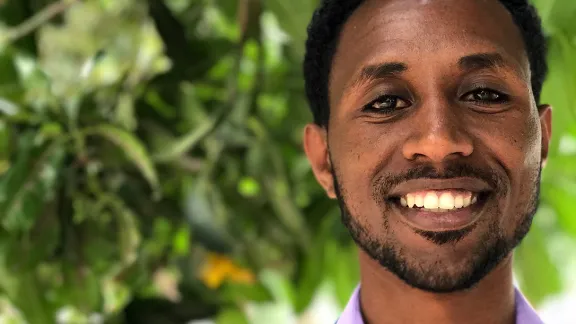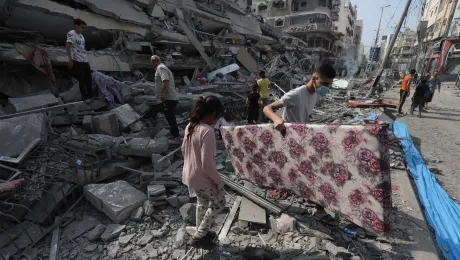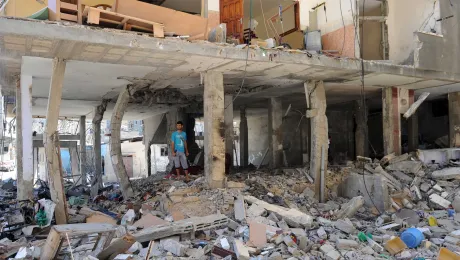
Eyob Yishak. Photo: LWF/Iris J. Benesch
Interview with Eyob Yishak, participant in LWF consultation on “Faith-based engagement in conflict transformation”
(LWI) – Faith-based actors can bring about a significant reduction in the level of conflict and contribute to its prevention. They are well-positioned to respond to the needs and concerns of people in conflict. They bring social capital in that they are able to link and build bridges between people and groups — vital assets in changing the nature of conflicts.
During the consultation “Faith-based engagement in conflict transformation: The role of religious actors in peace building“ hosted by the Lutheran World Federation (LWF) and the Zimbabwe Council of Churches (ZCC), 7-9 December 2016 in Zimbabwe, conflict transformation practitioners from select countries, and church leaders shared experiences of conflict situations in their countries. Eyob Yishak, a member of the Ethiopian Evangelical Church Mekane Yesus (EECMY) has developed a peace building curriculum for Mekane Yesus Theological Seminary. In an interview with LWI he speaks about the role of the church in conflicts.
What role does religion in general and the church in particular play in peace building?
Peace building requires the reconstruction of social, economic and political infrastructures that were destroyed by violent conflicts; it demands the promotion of social justice, equality and fairness; it requires speaking out against evil and challenging authorities whenever it seems necessary. It calls for being the voice of the voiceless and standing up for the marginalized. And religion, particularly the church, should do all of these and more to contribute toward peacebuilding.
You have organized many peace building activities. What have been your major successes?
The sports festivals I organized in 2013 and 2014 between the Oromo and Gumuz youth, who once fought one another, was a success. Bringing the leaders of a church synod and the leaders of a parish that belongs to the synod to sit together for the first time after many failed attempts was another success. After we had conducted separate discussions with each group, they were willing to meet. The April 2016 Gambella reconciliation conference was another successful peace conference, where the conflicting ethnic groups, the Anywa and Nuer, were able to forgive each other and wash one another’s feet. This was three months after the conflict and it has contributed to the reduction of violence and mistrust between the two peoples.
Will what you have heard at this consultation inform your work at the church peace office and the seminary. If yes, then how?
What I heard at the consultation will contribute to shaping my work in the peace office and also my teaching at the seminary. Particularly the presentation on the meaning of religious peace building and the discussion on the influence of culture on our interpretation of biblical concepts is relevant for my teaching at the seminary and my peace building work. The consultation reminded me once again of the importance of comprehensive and proper narratives of conflict histories and the healing of past wounds. I will keep trying to instigate movements towards national reconciliation and healing in my country.
Eyob Yishak coordinates the peace office of the Ethiopian Evangelical Church Mekane Yesus and teaches at Mekane Yesus Theological Seminary in Addis Ababa. Yishak holds a BA in political science and international relations and an MA in peace and security studies.


